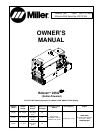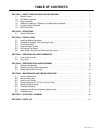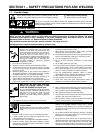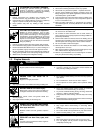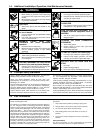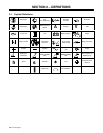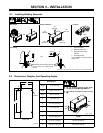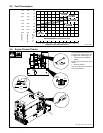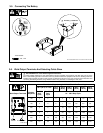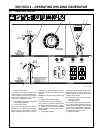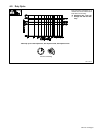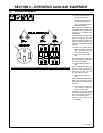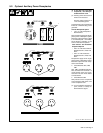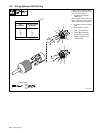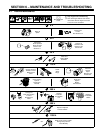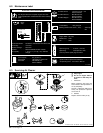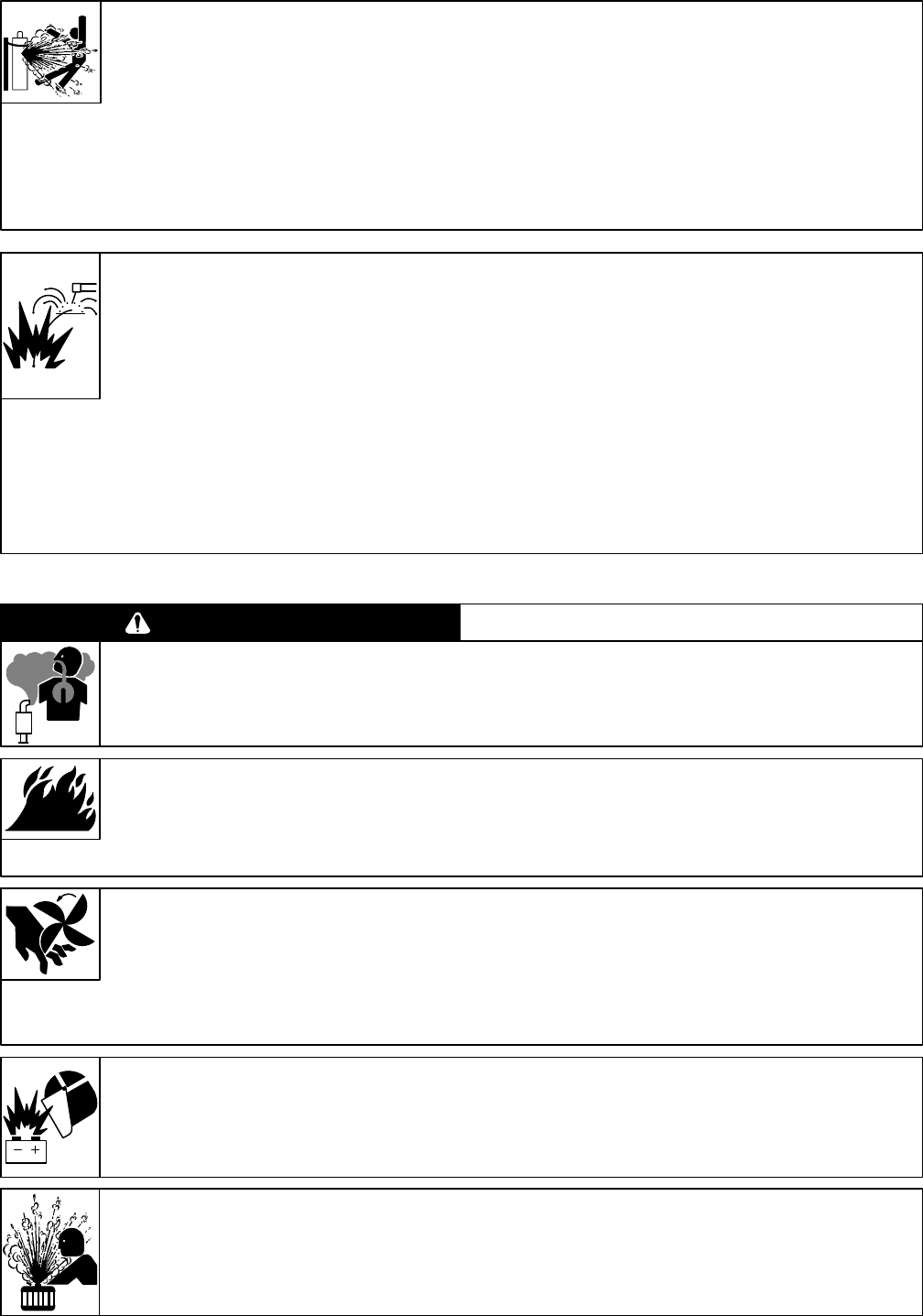
OM-175 104 Page 2
CYLINDERS can explode if damaged.
Shielding gas cylinders contain gas under high
pressure. If damaged, a cylinder can explode.
Since
gas cylinders are normally part of the welding
process,
be sure to treat them carefully
.
1. Protect compressed gas cylinders from excessive heat,
mechanical shocks, slag, open flames, sparks, and arcs.
2. Install
cylinders in an upright position by securing
to a stationary
support
or cylinder rack to prevent falling or tipping.
3. Keep cylinders away from any welding or other electrical
circuits.
4. Never
drape a welding torch over a gas cylinder
.
5.
Never allow a welding electrode to touch any cylinder
.
6.
Never weld on a pressurized cylinder – explosion will result.
7. Use
only correct shielding gas cylinders, regulators, hoses, and
fittings
designed for the specific application; maintain them and
associated
parts in good condition.
8. Turn
face away from valve outlet when opening cylinder valve.
9. Keep
protective cap in place over valve except when cylinder is
in
use or connected for use.
10. Read and follow instructions on compressed gas cylinders,
associated
equipment, and CGA publication P-1
listed in Safety
Standards.
WELDING can cause fire or explosion.
Welding on closed containers, such as tanks,
drums,
or pipes, can cause them to blow up. Sparks
can fly off from the welding arc. The flying sparks,
hot workpiece, and hot equipment
can cause fires
and
burns. Accidental contact of electrode to
metal
objects
can cause sparks, explosion, overheating,
or fire. Check and be sure the area is safe before
doing
any welding.
1.
Protect yourself and others from flying sparks and hot metal.
2. Do
not weld where flying sparks can strike flammable material.
3. Remove
all flammables within
35 ft (10.7 m) of the welding arc. If
this
is not possible, tightly cover them with approved covers.
4. Be
alert that welding sparks and hot materials from welding can
easily go
through
small cracks and openings to adjacent areas.
5. Watch
for fire, and keep a fire extinguisher nearby
.
6. Be
aware that welding on a ceiling, floor
, bulkhead, or partition
can cause fire on the hidden side.
7. Do not weld on closed containers such as tanks, drums, or
pipes,
unless they are properly prepared according to A
WS F4.1
(see
Safety Standards).
8. Connect
work cable to
the work as close to the welding area as
practical
to prevent welding current from
traveling long, possibly
unknown
paths and causing electric shock and fire hazards.
9.
Do not use welder to thaw frozen pipes.
10. Remove stick electrode from holder or cut off welding wire at
contact
tip when not in use.
11. Wear
oil-free protective garments such as leather gloves,
heavy
shirt, cuf
fless trousers, high shoes, and a cap.
12. Remove
any combustibles,
such as a butane lighter or matches,
from
your person before doing any welding.
1-3. Engine Hazards
ENGINE EXHAUST GASES can kill.
Engines
produce harmful exhaust gases.
1.
Use equipment outside in open, well-ventilated areas.
2. If used in a closed area, vent engine exhaust outside and
away
from any building air intakes.
WARNING
ENGINE FUEL can cause fire or
explosion.
Engine
fuel is highly flammable.
1. Stop
engine and let it cool of
f before checking or adding fuel.
2. Do
not add fuel while smoking or
if unit is near any sparks or
open
flames.
3.
Do not overfill tank – allow room for fuel to expand.
4. Do not spill fuel. If fuel is spilled, clean up before starting
engine.
MOVING PARTS can cause injury.
Moving
parts, such as fans, rotors, and belts can
cut
fingers and hands and catch loose clothing.
1. Keep all doors, panels, covers, and guards closed and
securely
in place.
2.
Stop engine before installing or connecting unit.
3. Have only qualified people remove guards or covers for
maintenance
and troubleshooting as necessary
.
4. To prevent accidental starting during servicing, disconnect
negative
(–) battery cable from battery
.
5. Keep
hands, hair
, loose clothing, and tools away from
moving
parts.
6. Reinstall
panels or
guards and close doors when servicing is
finished
and before starting engine.
SPARKS
can cause BA
TTERY
GASES
TO EXPLODE; BATTERY ACID can
burn eyes and skin.
Batteries contain acid and generate explosive
gases.
1. Always
wear a face shield when working on a battery
.
2. Stop engine before disconnecting or connecting battery
cables.
3. Do
not allow tools to cause sparks when working on a battery
.
4. Do
not
use welder to charge batteries or jump start vehicles.
5. Observe
correct polarity (+ and –) on batteries.
STEAM AND PRESSURIZED HOT
COOLANT can burn face, eyes, and
skin.
It is best to check coolant level when engine is
cold
to avoid scalding.
1. If
the engine is warm and checking
is needed, follow steps 2
and
3.
2. W
ear safety glasses and gloves and put a rag over cap.
3. Turn cap slightly and let pressure escape slowly before
completely
removing cap.



